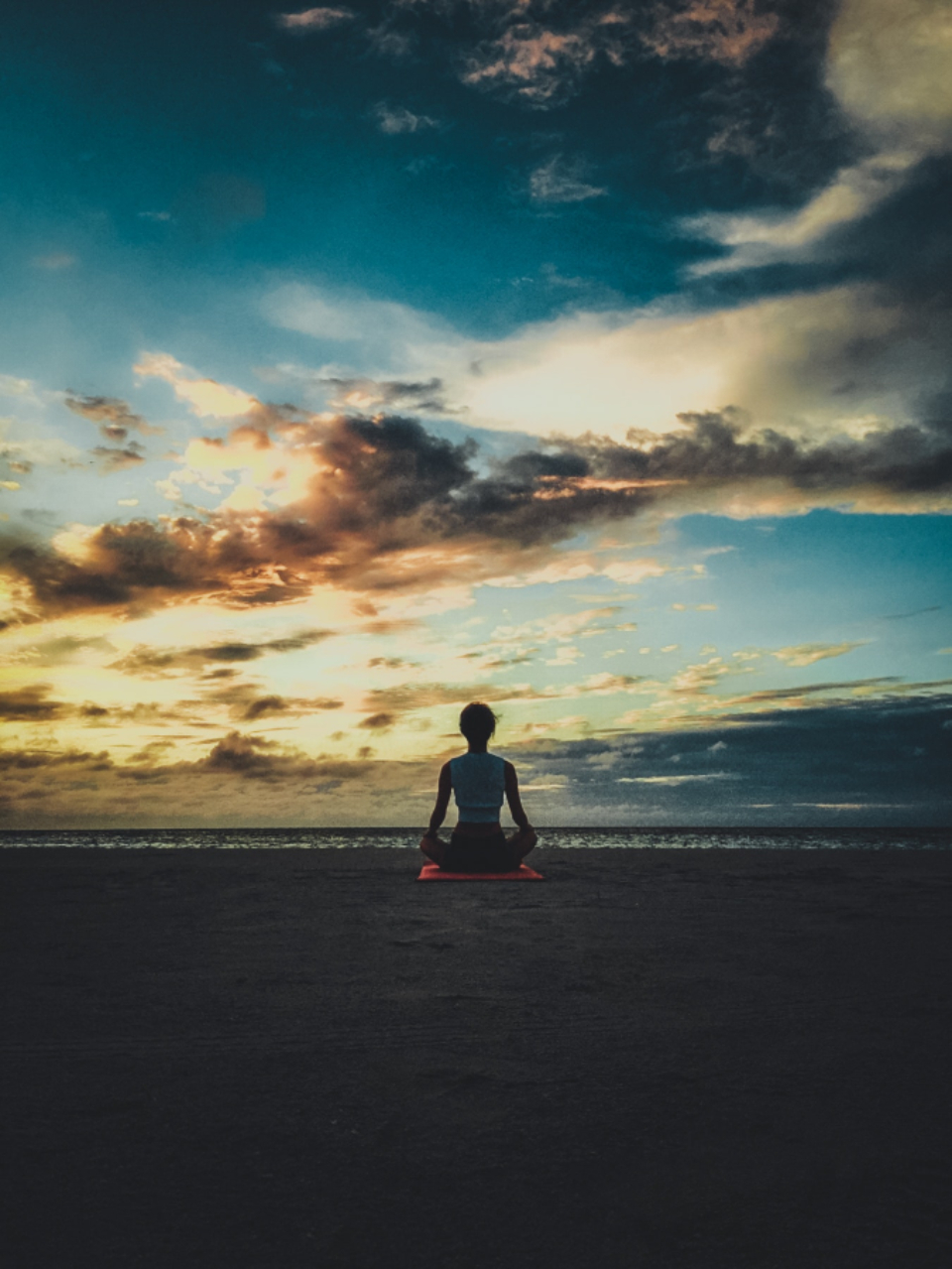
Discover 7 science-backed ways yoga helps in stress and anxiety. Learn how simple movements and breathing can boost mood, sleep, and inner peace.
INTRODUCTION :
In today’s fast-paced world, stress and anxiety are more common than ever. From tight work deadlines to emotional struggles, it’s easy to feel overwhelmed. But what if there was a natural, effective way to calm your mind and body—without needing medication or expensive therapy?
You don’t need to be flexible or spiritual to get started. With just a few minutes of mindful movement and breathing, yoga can help you feel more relaxed, grounded, and in control.
This article breaks down seven powerful, research-backed ways yoga helps with stress and anxiety, explained in simple, everyday language. Whether you’re a beginner or just curious, this guide is for you.
How Yoga Helps In Stress and Anxiety :
1. Yoga Activates the Body’s Relaxation System
When you’re stressed, your body triggers a “fight or flight” response. Your heart beats faster, muscles tighten, and you may feel breathless. Over time, this wears you down.
Yoga flips that switch.
Through slow movement and controlled breathing, yoga activates the parasympathetic nervous system also called the “rest and digest” system. This naturally lowers your:
- Heart rate
- Blood pressure
- Cortisol (stress hormone) levels
Studies in journals like Frontiers in Psychology confirm that even 10 minutes of gentle yoga can reduce signs of physiological stress.
2. Yoga Teaches You How to Breathe Calmly and Fully
Breath is one of the quickest ways to influence your nervous system. When we’re anxious, we tend to breathe in short, shallow bursts. This keeps the body on high alert.
Yoga uses a practice called pranayama—the art of breathing mindfully. Techniques like:
- Box breathing (4-4-4-4)
- Alternate nostril breathing (Nadi Shodhana)
- Bee breath (Bhramari)
Benefits :
- Calm your mind
- Reduce blood pressure
- Slow down racing thoughts
One study from the International Journal of Yoga shows that slow, rhythmic breathing for just five minutes can lower anxiety levels significantly—even during panic-prone moments.
3. It Releases Physical Tension in the Body
Stress doesn’t just live in the mind it shows up in your body too. Think tight shoulders, clenched jaws, or a stiff back.
Yoga involves gentle stretches and poses that:
- Loosen tight muscles
- Improve posture
- Boost blood flow and oxygen to the brain
Simple poses like Child’s Pose, Legs-Up-the-Wall, and Cat-Cow are great for beginners and offer instant relief. As tension melts away, your body feels more open and at ease.
4. It Grounds You in the Present Moment
Anxiety often comes from worrying about the future or reliving the past. Yoga helps you return to the now the only moment you can truly control.
Focusing on:
- Your breath
- The movement of your body
- The feeling of your mat beneath your feet
It pulls you out of the mental storm and into a place of calm awareness. This mindfulness is key in reducing overthinking and improving emotional balance.
Psychology Today and Harvard Health both highlight mindfulness-based yoga as a powerful tool to manage Generalized Anxiety Disorder (GAD) and social anxiety.
5. Yoga Naturally Boosts Your Mood
Feeling low or emotionally drained? Yoga can help lift your spirits by boosting “feel-good” brain chemicals like:
- Serotonin – stabilizes mood
- Dopamine – boosts motivation
- GABA – calms nervous system activity
Clinical research published in Journal of Alternative and Complementary Medicine found that yoga increases GABA levels in the brain, which is especially helpful for anxiety and mild depression. Some yoga classes end with Savasana (rest pose) or guided meditation, helping you walk away lighter and more emotionally balanced.
6. It Improves Sleep and Reduces Insomnia
Stress and anxiety are common causes of poor sleep. Racing thoughts, tense muscles, and restlessness can keep you tossing and turning at night.
Gentle yoga before bed can help by:
- Relaxing your body and mind
- Reducing cortisol
A 2020 meta-analysis in Sleep Medicine Reviews found that people who practiced yoga regularly fell asleep faster, slept longer, and woke up less during the night.
Try this simple routine before bed:
- Forward Fold (1 min)
- Seated Twist (30 sec per side)
- Legs-Up-the-Wall (5–10 min)
- Savasana (5–10 min)
7. Yoga Builds Inner Strength and Emotional Resilience
Yoga is more than physical exercise—it’s a mental workout too. Over time, you’ll notice:
- You’re less reactive to stress
- You bounce back from challenges more easily
- You treat yourself with more kindness and compassion
Yoga teaches you to observe your thoughts instead of getting caught up in them. This skill—often called emotional regulation—helps reduce the grip of anxiety over time.
Yoga Is Backed by Science
Fact-check:
Over 10 high-quality studies and reviews confirm yoga’s benefits for stress and anxiety. Trusted sources like:
- Harvard Medical School
- NIH (National Institutes of Health)
- Mayo Clinic
- American Psychological Association
They recognize yoga as a safe and effective tool to improve mental well-being. However, they also note that it’s most helpful when combined with a healthy lifestyle and (if needed) professional therapy.
Read : 5 Alarming Ways Lack of Sleep Can Trigger a Mental Breakdown And How to Prevent It
Read : The Effect of Yoga on Stress, Anxiety, and Depression in Women
Yoga For Anxiety and Stress :
Conclusion:
You don’t need fancy clothes, a perfect pose, or an expensive class. You just need a quiet space, a little time, and a willingness to care for yourself.Whether you’re doing yoga for 5 minutes or 50, the benefits can be truly life-changing. From calming your nerves to improving your sleep, yoga is one of the most powerful tools to manage stress and anxiety naturally. Start small. Breathe deep. Move gently. And remember your calm is always one breath away.
Disclaimer : It is always better to contact your physician or doctor in such conditions.

